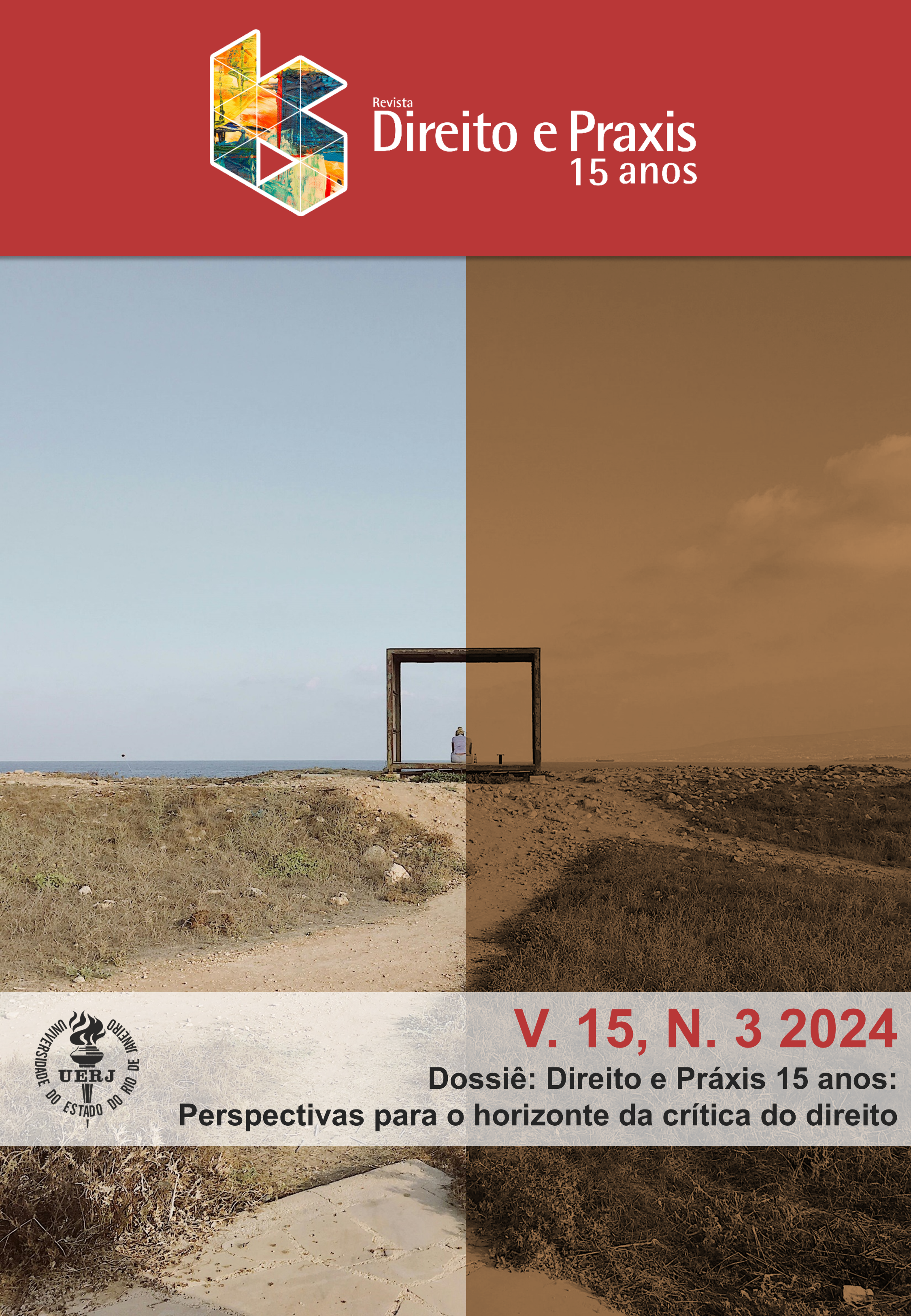Slightly illegal
female positions and perceptions of law from “The Girl in the Photograph”, by Lygia Fagundes Telles
Keywords:
Law, Feminism, Testimony, Literature, DictatorshipAbstract
https://doi.org/10.1590/2179-8966/2023/68224i
Published in 1973 and set in the Brazilian civil military dictatorship (1964-1985), the novel The girl in the photograph, by Lygia Fagundes Telles, accompanies three young women living in a boarding school who build, in alternate voices, a complex narrative capable of covering both everyday life and the socio-political reality of the period. Through an analysis of law in the literature, the present research focused on the positions of the protagonists of the novel to investigate the many ways that Law can take on in its relationship with people, especially women – or, better, how its presence (or absence) can result in oppression and violence. It was concluded, in the end, not only the revolutionary potential of testimony literature for the revival of collective memory and the denunciation of social injustices, but also – and mainly – the permanence of the criticisms extracted from the novel to the sexist, indifferent and conniving structures of the Brazilian law.
Keywords: Dictatorship; Law; Literature; Feminism; Testimony.
Downloads
Downloads
Published
How to Cite
Issue
Section
License
Copyright (c) 2023 Direito e Práxis

This work is licensed under a Creative Commons Attribution 4.0 International License.
The authors the sole responsibility for their texts.
It is allowed the total or partial reproduction of the articles of the Journal Law and Praxis, if the author is mentioned.
This work is licensed under a Creative Commons Attribution-Noncommercial-Share Alike 4.0 Unported License.
This license allows you to copy and redistribute the material in any medium or format for any purpose, even commercial, provided the original authorship is cited.
This work is licensed under a Creative Commons Attribution 4.0 International License.



